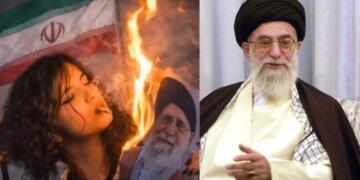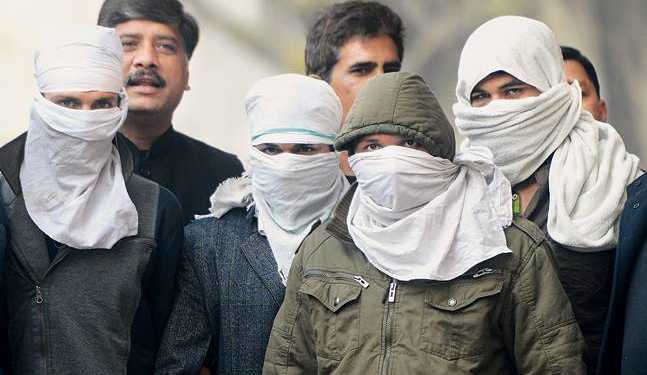There are two kinds of terrorist attacks, one which happened, others which could not – The averted terror attacks. And it is imperative we count both, and learn from both.
Averted Terror attacks: Survivorship Bias and Terror
We study cases of Apple and Google, and other highly successful organisations, trying to learn what they did right. Newspapers pin point all their correct steps which we try to emulate, believing these to be keys of success. But we are mistaken when we ignore hundreds of other firms which did the same, if not more, and failed. We look up to highly successful CEOs and start ups and dissect their right steps, while many of their counterparts might have failed doing the same. Public, through media, focuses on what transpired and tend to ignore what did not, and we make a grave mistake here.
On 4th Feb, Delhi Police special cell arrested Mohsin, who, through hawala channels was monetizing operations for the four youths arrested a couple of weeks back, with suspected ISIS connection. These four were planning to bomb the Hindu pilgrimage of Ardh Kumbh. This successful thwarting made headlines winning accolades for our security forces. But the sequence of events and its death in silence, like those of similar nature, could not indent itself in the psyche of masses. It is also an unfortunate case of Survivorship Bias.
In its classic form, a Survivorship Bias focuses too much on the events that transpired and (statistical) population that survived, and tends to ignore the ones that could not. That is why, a terrorist attack makes a good topic for discussions on whats, and what ifs, and counterfactuals for years; while the means by which another attack was thwarted and the ability to do so more effectively, hardly gets citizens serious. Discounting for the bias, which is imperative for a neutral approach to a study, a foiled attack should be paid an equal attention, if not more, as the one which happened to be materialized. Indian, among other security agencies have been largely successful for not just having and imagining contingencies at place, but also acting on the preventable.
Averted Terror attacks and the Politics of Terror
Talking of contingencies, Indian security agencies have been phenomenal. Legislature has also done their part. POTA, enacted in 2002 was a step that strengthened powers of forces. The tough act was aimed at giving a freer hand to forces, to prevent and deter unforeseeable attacks. First thing UPA government did, quintessential of their sickening politics, after coming to power was to scrap POTA and implement a toothless version of theirs. Their minority pampering saw new limits so much so Sushilkumar Shinde, Home Minister in 2012 asked security agencies ‘to be careful while arresting minorities’ and repeatedly writing letters to forces about ‘carefully’ arresting suspects in terror cases discouraging their morale.
Averted Terror attacks -Taking Stock of Reality
In current times, the spectre of terror in form of ISIS looms large over Indian security sphere. The threat of this ghost is palpable, for its success oversees in form of direct action, as in Paris; and its growing clout in Indian subcontinent, via internet based radicalisation for example.
A few things here are necessary to be mentioned. One, it is important to envision the threat. Two, what has happened may not provide the complete picture of what lies ahead. Empiricism, which builds upon the available data, may not give strong hints of future, because we lack the data itself; as not every conspiracy had culminated in an attack. Three, to have a plan built on inductive reasoning requires support of public, which we miss most of the times.
Averted Terror attacks – Small Attempts for Big Things
In Sep’15 MI5 chief went on radio, in a live telecast to appeal and explain, if not warn and scare, UK public of technological threat looming large. He asked for a deeper and stricter surveillance to effectively deal with terror threat, in a move which was seen as motivated by Conservative party, to tilt the electorate in favour of impending new and stricter laws against terror.
The discussion about approach of a government between libertarian and authoritarian makes fight-against-terror a casualty, but the resistance against surveillance has a well founded concern. Assange and Snowden, among others gave world an evidence of over-stepping by governments of their bounds. Orwell scared the reading masses of totalitarianism. In movies like V for Vendetta, Equilibrium, and Cloud Atlas, we see the protagonists fighting against totalitarian regimes, in the backdrop of existing dystopia. No doubt, Orwell and others did humanity a favour, by warning them of possible propaganda, but an over emphasise on it and seeing all government actions with a prism of propagandism, is propaganda in itself. There are groups of people, in civil society, NGOs, intellectuals, who constantly warn people against ‘government’s ill intention’ which are to be taken with a pinch of salt.
Averted Terror attacks – Taking Possibilities Seriously
Our world is probabilistic. Counter arguments against surveillance, citing ‘examples’ distort reality, for these examples take only determinism in effect. It is important for the public discussion to take probables as seriously as definitive events in past; to map our future with security. A contingency plan, with emphasis on probables would have helped Europe dealing better with ramifications that stand at its face, after the refugee influx. Possibilities which were earlier dismantled as imaginary threats did not take long to turn into reality.
From our end, as common citizens, the least we can do is not forget averted terror attacks and support government in what would seem a practical solution in doing so further. Probably we can think of trading off a bit of our liberty, for our security.




























